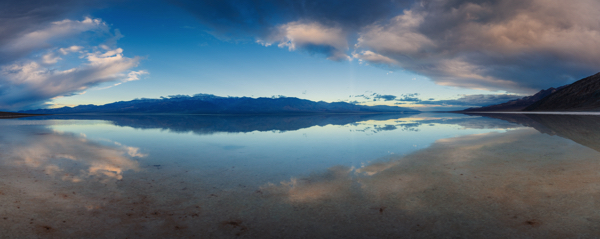- Scientists have discovered a massive underground aquifer beneath Oregon’s Cascade Mountains, containing at least 81 cubic kilometers of water – more than twice the volume of Lake Mead.
- The aquifer, described as a “continental-size lake stored in the rocks,” is likely the largest of its kind in the world, with potential similar reservoirs in other volcanic regions.
- Researchers used temperature data from deep drill holes to map the aquifer, revealing it is far larger than previous estimates based on surface water measurements.
- The discovery has significant implications for water management in the drought-stricken Western United States, offering a potential source of water security but also highlighting the need for careful stewardship.
- The aquifer’s existence also sheds light on the link between water and volcanic hazards, emphasizing the importance of further research to assess potential risks.
In a groundbreaking discovery that could reshape how people think about water resources and volcanic activity, scientists have uncovered an enormous aquifer hidden beneath the volcanic rocks of Oregon’s Cascade Mountains. This colossal underground reservoir holds at least 81 cubic kilometers of water — more than twice the volume of Lake Mead, the largest reservoir in the United States. The findings, published in the journal Proceedings of the National Academy of Sciences, reveal a hidden treasure that could have far-reaching implications for water management in the drought-stricken West and our understanding of volcanic processes.
A continental-scale water tower
The newly discovered aquifer is described as a “continental-size lake stored in the rocks at the top of the mountains, like a big water tower,” according to Leif Karlstrom, an Earth scientist at the University of Oregon and co-author of the study. The aquifer’s immense size makes it likely the largest of its kind in the world, with similar volcanic aquifers potentially existing north of the Columbia Gorge and near Mount Shasta.
The Cascade Range, stretching 700 miles from Northern California to British Columbia, has been shaped by millions of years of volcanic activity. The region’s volcanic rocks, some as old as 45 million years, have created a unique landscape where water flows through cracks and fissures, forming vast underground reservoirs. The discovery of this aquifer was unexpected, as researchers initially set out to study how the Cascade landscape evolved over time and how water moves through it.
“We discovered important things that people care about: the incredible volume of water in active storage in the Cascades and also how the movement of water and the hazards posed by volcanoes are linked together,” said Gordon Grant, a hydrologist with the U.S. Forest Service and co-author of the study. […]
— Read More: www.naturalnews.com
What Would You Do If Pharmacies Couldn’t Provide You With Crucial Medications or Antibiotics?
The medication supply chain from China and India is more fragile than ever since Covid. The US is not equipped to handle our pharmaceutical needs. We’ve already seen shortages with antibiotics and other medications in recent months and pharmaceutical challenges are becoming more frequent today.
Our partners at Jase Medical offer a simple solution for Americans to be prepared in case things go south. Their “Jase Case” gives Americans emergency antibiotics they can store away while their “Jase Daily” offers a wide array of prescription drugs to treat the ailments most common to Americans.
They do this through a process that embraces medical freedom. Their secure online form allows board-certified physicians to prescribe the needed drugs. They are then delivered directly to the customer from their pharmacy network. The physicians are available to answer treatment related questions.


